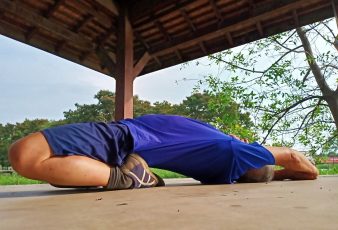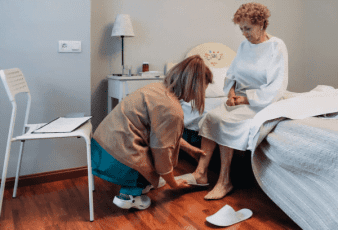With so much going on in the modern world, sometimes we struggle to get good sleep. But rest is one of the pillars of health.
If you are having trouble getting your necessary number of ZZZs, you might have thought about using natural supplements to help you sleep.
Here are six natural supplements that are said to boost your sleep.
1. Melatonin: The Hormone of Slumber

Melatonin is a hormone made by your body and it’s a natural cue for sleep: more melatonin circulates the blood during the night, telling the body to sleep.
Light, stress, commuting, and staring at screens can all disturb this rhythm, and that’s where melatonin supplements can come in. They are particularly good at resetting the body’s internal clock – for example, if you struggle with jet lag or if you work night shifts.
Usually considered non-toxic, it’s still a good idea to start with low doses and see how you fare.
2. Lavender: The Aroma of Slumber
The relaxing, calming effects of lavender are well-known worldwide. Scientific research shows inhaling lavender oil is likely to improve sleep quality. Experts believe that the lavender fragrance can slow down heart rate and reduce blood pressure, a condition leading to relaxation.
Lavender oil can be used by putting lavender, flower, or oil in a diffuser, massaging oil directly onto one’s skin, or placing dried lavender in a sachet in bed.
3. CBN: Emerging As a New Player in Sleep Solutions
Cannabinol is called CBN for short, and it’s derived from the cannabis plant, often found in stale varieties of the herb – and it’s often associated with making a person drowsy. So, it shouldn’t be too surprising that 20 percent of people who tried CBN or CBN-rich products like gummies reported using them to help with sleep.
Many find CBN, whether in the form of an oil, tincture, or gummy (like those from SimpleLeaf.com), helps to ease anxiety and chill the brain, and this can be helpful for rest. Some personal accounts so far suggest these can help with sleep – both for easing the mind and ushering the body into a more restful mood, but we need proof regarding this potential benefit.
4. Valerian Root: The Time-Honored Botanical
Valerian root has long been hailed as a holistic treatment for a variety of health conditions, including sleep disorders. It is thought to increase GABA levels – this is a neurotransmitter that helps maintain calm in our nervous system and promotes sleep.
Valerian root is popular among many people seeking a non-drug path to better sleep, though empirical research on valerian root is mixed. However, experimenting with it as an organic way to get a better night’s sleep might be a worthwhile pursuit for those who struggle with issues such as anxiety or stress.
5. Passionflower: The Soothing Blossom
Another traditional stress-release, sleep-inducing herb is Passionflower (Passiflora incarnata). Maybe like the valerian root, the plant augments our brain levels of GABA, which allows us to fall asleep faster and stay asleep longer.
According to some research, taking passionflower tea 60 minutes before bedtime can enhance sleep efficiency. For those looking for a natural non-tablet aid to a better night’s sleep, this might be worth trying.
6. Magnesium: The Mineral of Calmness
The mineral magnesium is involved in more than 300 metabolic functions supporting good health in the brain, muscle, and around the body. It’s a well-known muscle and nerve relaxant. Magnesium supplements improve sleep quality for those who are low in the mineral.
Sleep aid supplements help us, particularly people suffering from ailments such as chronic insomnia or restless leg syndrome.
Natural Sleep Improvement: Going Beyond Supplements

While the aforementioned supplements are a good place to start, it’s also important to understand the broader workings of natural sleep improvement.
How does a lifestyle change – when combined with these supplements – trigger a positive feedback cycle for better sleep? Let’s dive deeper.
The Influence of Nutritional Intake on Sleep Patterns
Keeping in mind that nutrition is a significant factor in sleep quality, adding a dietary boost to your magnesium supplement with spinach, almonds, pumpkin seeds, and other magnesium-dense food and drink is a good idea.
A tryptophan-filled diet with turkey, chicken, eggs, oily fish, and bananas is likely to enhance the availability of your brain’s sleep chemicals, the serotonins, and so assist in preparing your minds for sleep. But, of course, avoiding heavy evening meals and high-caffeine and sugar items is important to avoid the potentially disruptive effects on normal rhythms.
Physical Activity and Rest
Regular physical activity promotes restful natural sleep, among other benefits, by helping to keep blood pressure and other physical effects of stress in check. It can also recalibrate your circadian rhythm by slightly raising your body temperature, which then falls several hours later and makes you feel sleepy.
But keep an eye on when you work out: a high-energy workout too close to bedtime can be stimulating; high-energy activity should ideally wind down a few hours before bedtime.
Methods of Conscious Awareness and Stress Reduction
Meditation, deep breathing, yogic relaxation – in general, any form of relaxation, like mindfulness, can make a huge difference to your sleep. It induces calm in the mind and reduces stress and arousal: your mind and body can really be ready to sleep now. Other techniques, such as progressive muscle relaxation, can also be very good – if you use it together with, for example, lavender or passionflower.
Establishing a Slumber-Promoting Atmosphere
While a restful and tranquil sleeping space sets the stage for sleep, certain factors can throw a wrench in the process. The presence of noise, light, and heat should all be mitigated. Therefore, if you can afford blackout drapes, white-noise machines, and even earplugs, best to get them. Similarly, don’t skimp when it comes to bedding – your mattress and pillows should strike the right balance, too.
The Strength of Habit
By setting up a regular sleep schedule, what you can do is improve your rest. Sticking to set bed and wake times each day, including weekends, helps to reset your internal body clock, while those pre-bed rituals such as reading a few chapters of a book or taking a warm bath act as triggers to turn off.
The Influence of Technological Advancements
The blue light emitted from digital displays might hinder the generation of melatonin. So, it helps to cut back on-screen time at least an hour before bedtime so that you don’t experience this phenomenon. If digital device use is unavoidable, consider either eyewear that filters out blue light or screen filters.
Natural Infusions for Restful Slumber
Beyond the passionflower tea, you can also sip on a chamomile or lemon balm infusion to help you calm down and sleep more easily, and add to the mix other supplements like valerian root.
The Importance of Adequate Water Intake
You should be adequately hydrated to ensure good health, but you should also have a liquid regimen that allows you to sleep through the night, not stand up and urinate three or four times. Drink most of your daily liquids earlier in the day.
Handling Tension and Worry
Chronic stress and anxiety often can hinder a good night’s sleep, and CBT has proved useful in helping to manage these side effects. Supplements containing CBD and passionflower might also help reduce anxiety, thereby improving sleep.
The Significance of Sunshine
Access to natural sunlight and, better yet, sunlight in the morning, is a great reset for your circadian rhythm. Try to allot some time for outdoor activities. You might want to invest in a light box if you live in parts of the world where you can’t get much sunlight.

Now That You’re This Far, Let’s Wrap It Up…
Optimizing sleep is complex, and natural enhancers such as melatonin, CBN, valerian root, magnesium, lavender, and passionflower should be only part of an overall plan involving dietary modifications, physical activity routines, stress-reduction strategies, and the optimization of your sleeping environment.
With this holistic approach to improved sleep, you improve more than your health; you elevate your wellness, which leads to more restful nights and refreshed days. Consistency is key when it comes to sustained results. It’s also important to get professional advice from a healthcare provider before making dramatic changes to your wellness routine.
Taking herbal aids could vastly improve your sleep, especially if you would rather avoid sleeping pills. However, these supplements don’t work the same way for everyone and can interfere with some medications or treatments – or have side effects. Talk to a doctor before taking a new supplement, especially if the supplement will interact with a pre-existing medical issue.
Remember, the supplements are meant to be part of a viable overall approach to improve the quality of your sleep – which includes following good sleep hygiene, creating a sleep-friendly environment, and sticking to a regular sleep routine. Combining good sleep habits with an excellent natural supplement can help most people get to sleep – and stay asleep – in order to achieve the kind of restorative sleep our bodies and minds need.
Read Also:




























